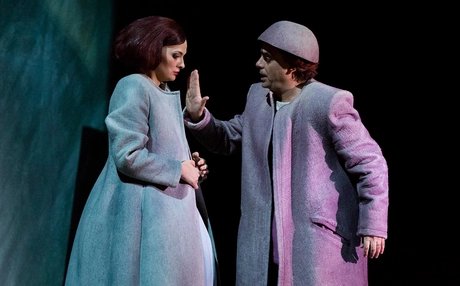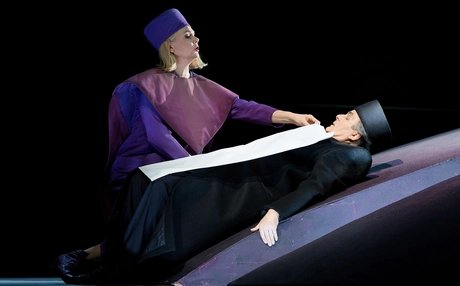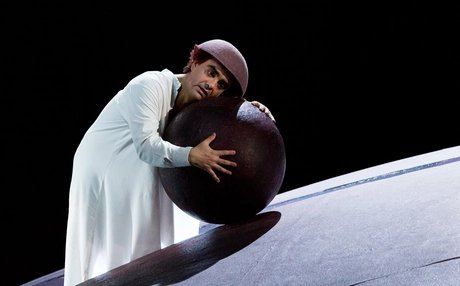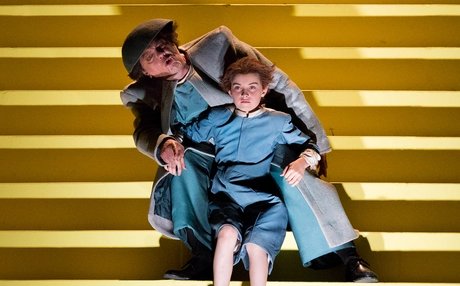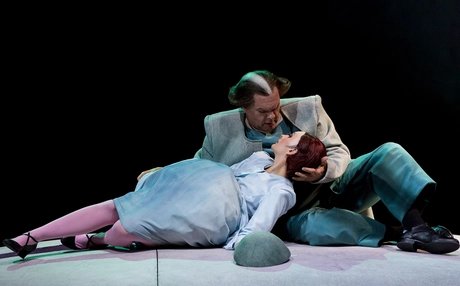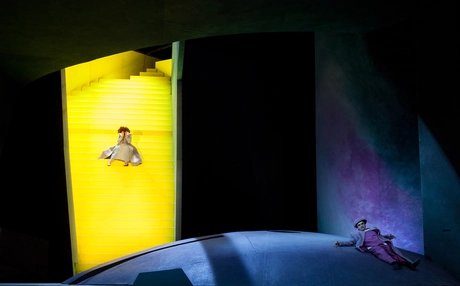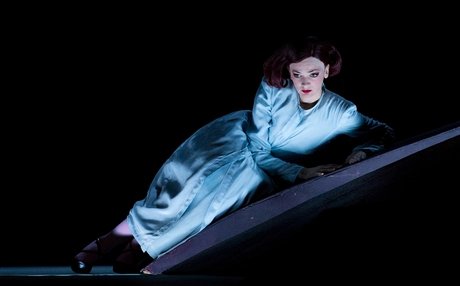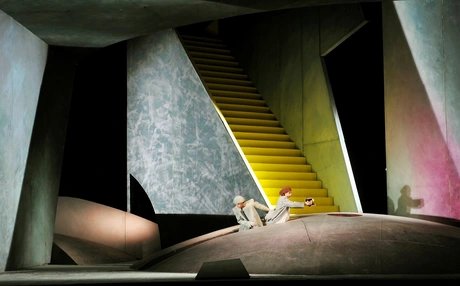
Lyrical drama in five acts (1902)
With the premiere of Pelléas and Mélisande in 1902, Claude Debussy challenged the listening habits of his contemporaries. His sophisticated instrumentation and innovative sound design transformed Wagner's leitmotif technique into a subtle dramaturgy of timbres. Instead of concrete descriptions, Debussy created musical atmospheres and soulful images that can often only be guessed at.
The libretto is based on the drama of the same name by the Flemish Symbolist Maurice Maeterlinck – a mysterious, tragically ending love triangle between the stepbrothers Golaud and Pelléas, and the enigmatic Mélisande. The plot remains deliberately vague, while inner conflicts and psychological depths take center stage. Debussy's music reflects this restraint, often bordering on silence, yet beneath its seemingly monochrome surface, a fascinating world of sound unfolds.
The legendary director Ruth Berghaus brought the work to the stage at the Staatsoper Unter den Linden in 1991 and created a production that impressively captures the special atmosphere of the piece.
- Duration: approx. 3:15 h including an interval after the 3rd act
(Languages: In French with German and English subtitles)
Additional information
Act one
Golaud, having wandered astray while hunting, comes upon the mysterious Mélisande. He questions her, but learns only that she has fled the company of mankind. Golaud convinces her to follow him. Geneviève reads King Arkel a letter, which Golaud has written to his brother Pelléas. In the letter, Golaud tells of his marriage to Mélisande, and asks Pelléas to ask Arkel whether he is prepared to honour this stranger as his own daughter. A particular fire signal is to indicate Arkel’s willingness to accept Mélisande, who complains to Geneviève about the gloominess of the park and the castle. Pelléas and Mélisande find the ship that brought Mélisande to this place.
Act two
Mélisande loses the ring she received from Golaud in the fountain. In the instant the ring falls into the fountain, Golaud’s horse rears up. Golaud notices that the ring is missing from Mélisande’s finger, and sends her into the dark night to look for the ring. Pelléas is to accompany her. In a cave, Pelléas and Mélisande discover three sleeping old troglodytes. Mélisande flees in horror.
Act three
Pelléas amuses himself, playing with Mélisande’s hair. Golaud arrives, rebukes their "child’s play", and leads Pelléas to the Cistern of Death, advising his brother to avoid Mélisande in future. Golaud increasingly doubts Mélisande’s faithfulness. After ordering his son Yniold to observe them, he learns that the two have kissed.
Act four
Mélisande promises Pelléas that she will come, when evening falls, to the fountain where she has lost the ring. It is to be their final meeting. Arkel tries to convey to Mélisande his own affection for her. After Golaud humiliates Mélisande, she and Pelléas meet in secret. Golaud, jealous, then murders his brother. Mélisande flees again.
Act five
Mélisande has now given birth to a child, and fallen very ill. Golaud demands to know from her whether her love for Pelléas was unchaste. Mélisande dies. Arkel words of eulogy over her: "Oh, she was such a dear small creature, so timid, so quiet and so tender. Yes, this poor small creature was full of mystery, as are we all …".
Pre-performance lecture, 45 minutes prior to each performance (in german)
Golaud, having wandered astray while hunting, comes upon the mysterious Mélisande. He questions her, but learns only that she has fled the company of mankind. Golaud convinces her to follow him. Geneviève reads King Arkel a letter, which Golaud has written to his brother Pelléas. In the letter, Golaud tells of his marriage to Mélisande, and asks Pelléas to ask Arkel whether he is prepared to honour this stranger as his own daughter. A particular fire signal is to indicate Arkel’s willingness to accept Mélisande, who complains to Geneviève about the gloominess of the park and the castle. Pelléas and Mélisande find the ship that brought Mélisande to this place.
Act two
Mélisande loses the ring she received from Golaud in the fountain. In the instant the ring falls into the fountain, Golaud’s horse rears up. Golaud notices that the ring is missing from Mélisande’s finger, and sends her into the dark night to look for the ring. Pelléas is to accompany her. In a cave, Pelléas and Mélisande discover three sleeping old troglodytes. Mélisande flees in horror.
Act three
Pelléas amuses himself, playing with Mélisande’s hair. Golaud arrives, rebukes their "child’s play", and leads Pelléas to the Cistern of Death, advising his brother to avoid Mélisande in future. Golaud increasingly doubts Mélisande’s faithfulness. After ordering his son Yniold to observe them, he learns that the two have kissed.
Act four
Mélisande promises Pelléas that she will come, when evening falls, to the fountain where she has lost the ring. It is to be their final meeting. Arkel tries to convey to Mélisande his own affection for her. After Golaud humiliates Mélisande, she and Pelléas meet in secret. Golaud, jealous, then murders his brother. Mélisande flees again.
Act five
Mélisande has now given birth to a child, and fallen very ill. Golaud demands to know from her whether her love for Pelléas was unchaste. Mélisande dies. Arkel words of eulogy over her: "Oh, she was such a dear small creature, so timid, so quiet and so tender. Yes, this poor small creature was full of mystery, as are we all …".
Pre-performance lecture, 45 minutes prior to each performance (in german)
